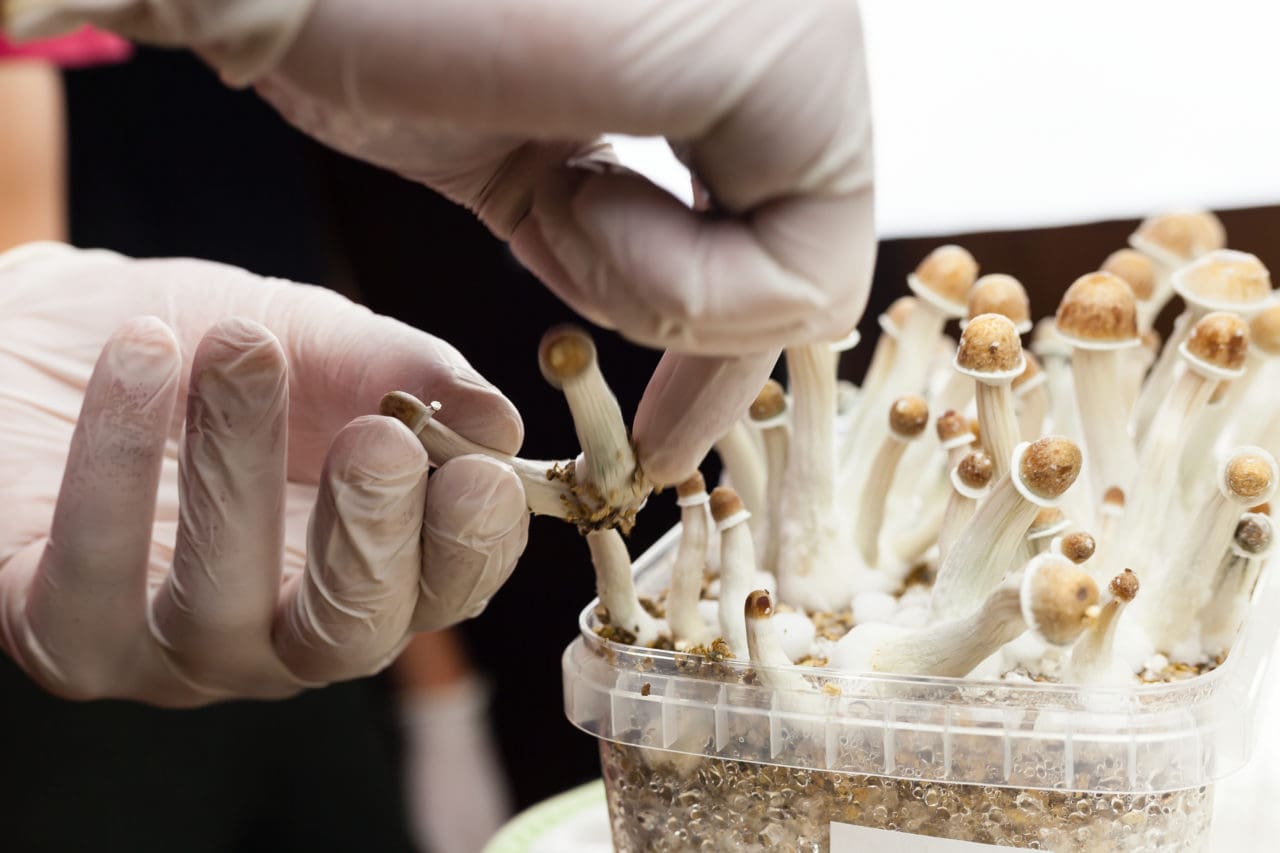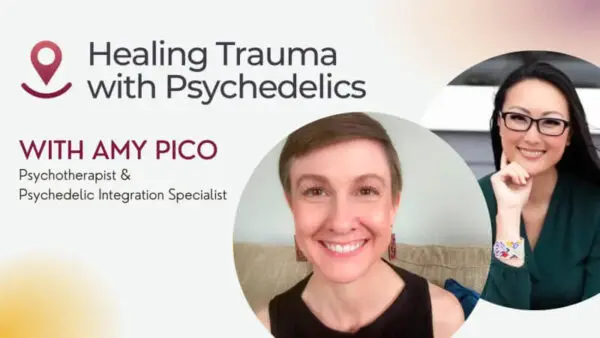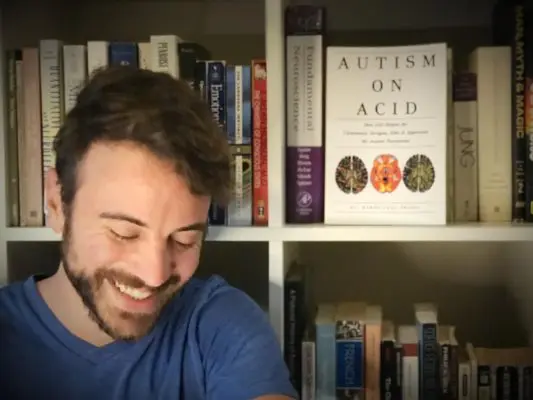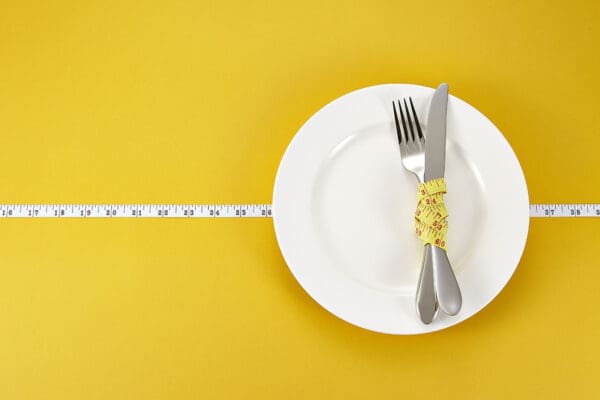Medical Editor: Dr. Lynn Marie Morski, MD, Esq
Most psychedelics, such as LSD and MDMA, have anecdotal reports regarding their success assisting with many different diagnoses such as anxiety and substance dependency. While anecdotal reports are useful, psychedelic therapy requires sound science to help make the medicine safely accessible in treating medical conditions.
Luckily, the field of psychedelic research has recently seen a massive upsurge in activity, which has allowed practitioners to better identify which psychedelic medicines may best address certain conditions.
Below are prominent conditions that psychedelics may be able to treat, and up-to-date information on evidence-backed specific therapies for their use.
Substance Use Disorders
Although it may seem contrary to traditional abstinence-only 12-step methods of recovery, even Bill Wilson, the founder of Alcoholics Anonymous, reportedly used LSD to maintain his sobriety from alcohol, according to the book Distilled Spirits: Getting High, Then Sober, with a Famous Writer, a Forgotten Philosopher, and a Hopeless Drunk by Don Lattin.
Bill Wilson wasn’t alone in using LSD to address alcohol use disorder. Clinical trials between 1966 and 1970 gave patients LSD once as a part of therapeutic treatment for alcohol use disorder. Their results suggest that 81 to 100 percent of the patients abstained from alcohol at the first follow-up, and six months later, participants who took the psychedelic were 15% more likely to remain sober from alcohol.A more recent 2019 survey of 343 people with alcohol use disorder who took either LSD or psilocybin found that after the psychedelic experience, 83% no longer met alcohol use disorder criteria.
In addition to LSD, emerging research suggests that ibogaine could treat alcoholism and other substance use disorders. A 2017 study observed 30 subjects with opioid dependency. Its findings suggest that ibogaine helped both with opioid withdrawal symptoms and reduced drug use in subjects for whom other treatments had been unsuccessful.
Scientists are also studying MDMA for alcohol use disorder. A 2019 study, suggests that MDMA is well-tolerated as a treatment for substance use disorder, and plans to continue and expand upon its findings.
But perhaps the most important research regarding psychedelics and substance use comes from 2016 Johns Hopkins studies on smoking cessation. A pilot study found that two to three moderate to high doses of psilocybin, the psychedelic compound in magic mushrooms, combined with cognitive-behavioral therapy (CBT) for smoking cessation resulted in substantially higher six-month smoking abstinence rates than CBT alone or other medications provide. At the 12-month follow-up, 67% of participants were still abstinent from cigarettes. What’s more, 86.7% said the psilocybin experience was one of the most meaningful and spiritual experiences of their life. The results suggest that within a treatment program, psilocybin can make it much easier to stop smoking cigarettes.
PTSD
PTSD, or post-traumatic stress disorder, can occur after a person experiences a traumatic event such as combat, an assault, or a natural disaster. According to the U.S. Department of Veteran Affairs, 8% of the U.S. population lives with PTSD.
The traditional methods of treatment, such as SSRI antidepressants or cognitive behavioral therapy (CBT), the most effective form of talk therapy for PTSD, have not been particularly effective. Luckily, there is increasing research suggesting that psychedelics can play a major role in PTSD treatment.
In 2017, MDMA was granted breakthrough therapy status by the FDA. Phase 2 trials suggest that 67% of patients no longer met the criteria for having PTSD after MDMA-assisted psychotherapy. As a result of this success, MDMA is currently in phase 3 trials for PTSD and is expected to gain FDA-approval by 2023.
A 2020 study on trauma-related psychological and cognitive impairment among US Special Operations Forces veterans suggests that psychedelic treatment with ibogaine and 5-methoxy-N,N-dimethyltryptamine has potential for treating trauma-related psychological and cognitive impairment.
While MDMA is set to be the first psychedelic FDA-approved for such treatment, ketamine is also used legally to treat PTSD. This is done off-label primarily through infusions or a nasal spray. Research suggests that ketamine helps reset the default mode network, or DMN, or the brain which helps the brain reset from painful thoughts and patterns.
End of Life Care
Patients with a terminal diagnosis can experience PTSD, depression, and anxiety in conjunction with the stress of their physical illness. Thus, it is crucial to find safe and effective ways to improve their remaining quality of life. Increasing research suggests that psychedelic medicine can play a powerful role in end-of-life care.
A 2016 NYU study on terminally ill cancer patients found that one dose of psilocybin provided rapid relief from the emotional distress of sickness and the towering threat of death. High-dose psilocybin increased patients’ quality of life, the self-reported meaning of life, and optimism. It also decreased anxiety surrounding the possibility of death. This newfound life satisfaction remained for at least six months in 80 percent of the patients.
Research suggests psilocybin works by the signaling chemical serotonin, which is known to control mood and anxiety. “Several patients described edging up to the precipice of death and looking over to the other side,” writes Michael Pollan, author of How to Change Your Mind, regarding psychedelics and end-of-life care. “Tammy Burgess, given a diagnosis of ovarian cancer at fifty-five, found herself gazing across ‘the great plain of consciousness. It was very serene and beautiful. I felt alone but I could reach out and touch anyone I’d ever known. When my time came, that’s where my life would go once it left me and that was O.K.’”
Depression and Anxiety
Of course, one does not need a cancer diagnosis to experience depression or anxiety. The National Institute of Mental Health estimates that 7.1% of all U.S. adults will experience at least one major depressive episode in their lifetime. According to a 2012 study, it’s estimated that only 10-30% of people with depression experience results from traditional antidepressants such as SSRIs.
In 2019, ketamine became the first psychedelic medicine to gain FDA approval for treatment-resistant depression in the form of Spravato (esketamine). It is also used off-label for depression and anxiety through infusions. Unlike SSRIs, ketamine works quickly, in a matter of hours or days. This makes it particularly appealing for people experiencing suicidal thoughts or ideation.
Ketamine is not the only psychedelic medicine studied for depression. A 2020 study conducted by Johns Hopkins found that psilocybin-assisted therapy was effective in producing a rapid and substantial treatment for patients with major depressive disorder. The same study also noticed a reduction in anxiety symptoms.
Cluster Headaches and Migraines
Cluster headaches are extremely painful headaches that occur on one side of the head. They come in clusters, so one will experience a cycle of headaches followed by a headache-free period. They occur behind and around the eye and have been described as more painful than amputation without anesthesia. They may be caused by the dilation of blood vessels, abnormalities in the hypothalamus, or the sudden release of histamine, a chemical that fights allergies, or the mood-regulator serotonin.
Research suggests that psilocybin could treat cluster headaches. A 2006 study suggested that psilocybin and LSD successfully aborted a cluster headache attack. ClusterBusters, a non-profit advocacy and education group on cluster headaches, is part of a pilot study on the safety and efficacy of psilocybin treatment.
Cluster headaches are different from migraines. While cluster headaches can knock one out for a day, they come and go, with pain-free intervals. A migraine can fluctuate in intensity but lasts all day. Cluster headaches also usually occur on one side of the head, often behind the eye area. Migraines can take over the entire head, or be centralized in location. A 2017 study that analyzed anecdotal reports of using psilocybin and LSD for both cluster headaches and migraines suggests that psychedelic medicine has potential in treating these conditions.
Migraines can also be so disruptive that they interfere with one’s personal and professional life. Finding a medicine that actually works is imperative. A 2020 study suggests that psilocybin can also suppress migraines. The double-blind study on 10 subjects suggests that not only is psilocybin well-tolerated, but over a two-week period following a single dose of the psychedelic medicine, those who received psilocybin rather than the placebo experienced a significant reduction in migraine frequency.
Legality of Psychedelics in the US
Currently, ketamine is the only psychedelic with FDA approval (for treatment-resistant depression). It’s used off-label for other conditions, and MDMA is expected to gain FDA-approval for PTSD by 2023. Psilocybin, while still illegal federally, is legal in Oregon, where it will soon be able to it can be used to treat mental health conditions. Other psychedelics, while still illegal, such as ibogaine and LSD, while still illegal, show promise in medicine and ideally will have more research backing behind their efficacy as society’s acceptance of psychedelic medicine grows.
Conclusion and Final Thoughts
Evidence is mounting for psychedelic therapy treatment for a variety of medical conditions. While some, such as ketamine and MDMA, have more FDA-friendly research at the moment, it is likely just the tip of the iceberg. Medical interest is growing and catching up with the community, so one can expect to see more trials and more implications regarding the use of psychedelic therapy. While anecdotal research is helpful – and it is understandable to seek medicines such as LSD or psilocybin on one’s own while they are still illegal – ideally, psychedelic therapy should be done under the supervision of a trained medical professional.








